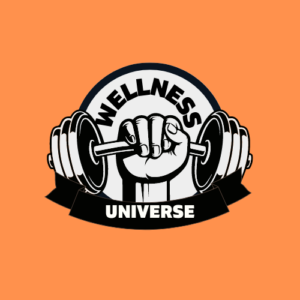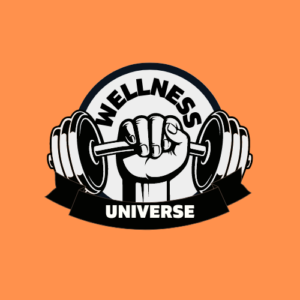Proper nutrition is the foundation of good health and well-being. It refers to the process of providing the body with the necessary nutrients it needs to function optimally. Nutrition involves the intake, absorption, and utilization of nutrients from food to support various bodily functions, including growth, repair, and maintenance.
The importance of nutrition cannot be overstated. It plays a vital role in supporting overall health and well-being by providing the body with the essential nutrients it needs to function properly. A well-balanced and nutritious diet helps maintain a healthy weight, supports the immune system, enhances mental clarity and focus, promotes optimal physical performance, and reduces the risk of chronic diseases such as heart disease, diabetes, and certain types of cancer.
You will discover practical tips and strategies to improve your nutrition, including guidance on healthy eating, the importance of a balanced diet, and understanding the different types of diets for specific nutritional needs. We will debunk common misconceptions about nutrition and address the potential risks of poor nutrition. Furthermore, we will explore the role of nutrition in digestion and gut health, as well as the necessity of supplements for optimal nutrition.
By the end of this blog, you will have gained valuable insights into the power of nutrition and how it can positively impact your life. So, let’s embark on this journey of discovery and unlock the secrets to nourishing your body and achieving optimal health through the power of nutrition.
The Role of Nutrition in Overall Health

Nutrition plays a crucial role in maintaining good health because it provides the body with the necessary nutrients, vitamins, minerals, and other substances it needs to function optimally. The foods we consume serve as fuel for our bodies, providing the energy and building blocks required for the growth, repair, and maintenance of tissues and organs.
A well-balanced diet that includes a variety of nutrient-rich foods is essential for supporting vital bodily functions such as metabolism, digestion, circulation, and hormone regulation. Each nutrient serves a specific purpose in the body, and a deficiency or imbalance can have significant health consequences. For example, inadequate intake of essential nutrients can weaken the immune system, impair cognitive function, and hinder the body’s ability to fight off diseases and infections.
Proper nutrition has a direct impact on our energy levels, immune system function, and the prevention of various diseases. The foods we consume provide the energy required for daily activities and bodily processes. Carbohydrates are the body’s primary source of energy, while proteins and fats also contribute to energy production. A diet lacking in essential nutrients can result in fatigue, low energy levels, and poor overall performance.
Nutrition also lays a vital role in supporting a healthy immune system. Certain nutrients, such as vitamins A, C, and E, zinc, and selenium, act as antioxidants and help strengthen the immune response, protecting the body against infections and diseases. A well-nourished immune system is better equipped to identify and eliminate harmful pathogens.
Additionally, nutrition plays a significant role in disease prevention. A diet rich in fruits, vegetables, whole grains, lean proteins, and healthy fats provides the body with essential nutrients and antioxidants that help reduce the risk of chronic diseases such as heart disease, diabetes, obesity, and certain types of cancer. On the other hand, a poor diet high in processed foods, saturated fats, added sugars, and excessive salt can contribute to the development of these diseases.
Scientific research has consistently shown a strong connection between nutrition and longevity. A well-balanced diet that is rich in nutrients, especially plant-based foods, has been associated with a longer and healthier life. Nutrient-dense foods provide the body with the necessary tools to repair cellular damage, support optimal organ function, and maintain a healthy weight.
Certain dietary patterns, such as the Mediterranean diet or the Okinawan diet, which emphasize whole foods, fruits, vegetables, legumes, nuts, seeds, and healthy fats, have been linked to increased longevity and a reduced risk of age-related diseases. These diets are typically high in antioxidants, fiber, and essential nutrients while being low in processed foods, saturated fats, and added sugars.
Furthermore, nutrition impacts various factors that influence longevity, including cardiovascular health, brain function, bone density, and overall physical and mental well-being. By adopting a nutritionally balanced diet and making informed food choices, we can optimize our health and increase our chances of living a longer, healthier, and more fulfilling life.
By understanding the importance of nutrition and making conscious choices to nourish our bodies, we can unlock the key to living a vibrant and thriving life.
Essential Nutrients for Optimal Health
Macronutrients are the nutrients that the body requires in large quantities to provide energy and support various physiological functions. They include carbohydrates, proteins, and fats.
- Carbohydrates: Carbohydrates are the body’s primary source of energy. They are broken down into glucose, which is used by cells to produce ATP (adenosine triphosphate), the energy currency of the body. Carbohydrates also play a role in supporting brain function, regulating blood sugar levels, and promoting digestive health. Good sources of carbohydrates include whole grains, fruits, vegetables, legumes, and dairy products.
- Proteins: Proteins are essential for the growth, repair, and maintenance of tissues and organs. They are made up of amino acids, which are the building blocks of protein. Proteins are involved in numerous functions in the body, such as enzyme production, hormone regulation, and immune system support. Good sources of protein include lean meats, poultry, fish, eggs, dairy products, legumes, and plant-based sources like tofu, tempeh, and quinoa.
- Fats: Fats are a concentrated source of energy and are necessary for the absorption of fat-soluble vitamins (such as vitamins A, D, E, and K). They also play a role in hormone production, insulation and protection of organs, and providing a feeling of satiety. It’s important to choose healthy fats, such as monounsaturated fats found in avocados, nuts, and olive oil, and polyunsaturated fats found in fatty fish, seeds, and vegetable oils. Limit the intake of saturated and trans fats, which are found in processed and fried foods.
While macronutrients provide the body with energy, micronutrients are essential for maintaining overall health and well-being. Micronutrients include vitamins and minerals, which are required in smaller amounts but are crucial for various biological processes.
- Vitamins: Vitamins are organic compounds that are essential for normal growth, development, and metabolic processes. They act as cofactors in enzymatic reactions and play a vital role in maintaining healthy skin, vision, immune function, and many other physiological functions. There are two types of vitamins: fat-soluble vitamins (A, D, E, and K) and water-soluble vitamins (B vitamins and vitamin C). Each vitamin has specific functions and food sources, and a balanced diet rich in fruits, vegetables, whole grains, and lean proteins can provide an adequate supply of vitamins.
- Minerals: Minerals are inorganic elements required for various bodily functions, including bone health, nerve function, muscle contraction, and maintaining fluid balance. Some essential minerals include calcium, iron, potassium, magnesium, and zinc. These minerals can be obtained from a diverse diet that includes whole grains, nuts, seeds, lean meats, dairy products, and fruits and vegetables.
To ensure optimal health, it’s important to include a wide variety of nutrient-dense foods in your diet. Here are some key sources of essential nutrients and their roles in the body:
- Whole grains: Whole grains such as quinoa, brown rice, oats, and whole wheat provide carbohydrates, fiber, B vitamins, and minerals like iron and magnesium.
- Fruits and vegetables: Fruits and vegetables are rich in vitamins, minerals, fiber, and antioxidants. They support immune function, promote digestion, and help reduce the risk of chronic diseases.
- Lean proteins: Lean meats, poultry, fish, legumes, and plant-based protein sources like tofu and tempeh provide high-quality protein, essential amino acids, and various vitamins and minerals necessary for muscle repair, hormone production, and immune function.
- Dairy products: Dairy products like milk, cheese, and yogurt are excellent sources of calcium, protein, and vitamins D and B12, which are essential for bone health, nerve function, and red blood cell production.
- Healthy fats: Foods like avocados, nuts, seeds, olive oil, and fatty fish (such as salmon and sardines) provide monounsaturated and polyunsaturated fats, omega-3 fatty acids, and fat-soluble vitamins, which support heart health, brain function, and overall well-being.
By incorporating a variety of nutrient-rich foods into your diet, you can ensure that your body receives the essential nutrients it needs for optimal health and function. Remember to consult with a healthcare professional or registered dietitian for personalized nutrition advice based on your individual needs and goals.
Nutrition and Weight Management
Nutrition plays a crucial role in weight management. The food we consume provides the energy needed for daily activities, and any excess energy is stored as body fat, leading to weight gain. Conversely, if we consume fewer calories than our body needs, it can lead to weight loss. However, weight management is not just about calories; the quality of the nutrients we consume is equally important.
- Carbohydrates: Carbohydrates are the body’s primary source of energy. Simple carbohydrates, found in foods like refined sugars and processed grains, can cause spikes in blood sugar levels and lead to weight gain if consumed in excess. On the other hand, complex carbohydrates, such as whole grains, fruits, and vegetables, provide fiber, vitamins, and minerals while promoting satiety and steady energy levels.
- Proteins: Protein is essential for building and repairing tissues, supporting muscle growth, and promoting satiety. It has a higher thermic effect on food, meaning it requires more energy to digest, absorb, and metabolize compared to carbohydrates and fats. Including lean protein sources in your meals, such as chicken, fish, beans, and tofu, can help boost metabolism and support weight management.
- Fats: While fats are calorie-dense, they are crucial for various bodily functions. Healthy fats, such as monounsaturated fats found in avocados, nuts, and olive oil, and polyunsaturated fats found in fatty fish, seeds, and vegetable oils, can promote satiety and provide essential fatty acids. However, it’s important to consume fats in moderation, as they are calorie-dense and excessive intake can contribute to weight gain.
- Portion Control: Paying attention to portion sizes is key for weight management. Even nutritious foods can contribute to weight gain if consumed in excess. Use smaller plates, practice mindful eating, and listen to your body’s hunger and fullness cues.
- Balanced Diet: Focus on a balanced diet that includes a variety of nutrient-dense foods. Fill your plate with plenty of fruits, vegetables, whole grains, lean proteins, and healthy fats. This approach ensures you get essential nutrients while managing calorie intake.
- Mindful Eating: Be mindful of your eating habits. Slow down during meals, chew your food thoroughly, and savor the flavors. This can help you recognize when you’re satisfied and prevent overeating.
- Hydration: Drink plenty of water throughout the day. Sometimes, thirst can be mistaken for hunger, leading to unnecessary snacking. Staying hydrated can also support overall health and proper digestion.
- Regular Meals and Snacks: Establish a routine of regular meals and snacks to maintain steady energy levels and prevent excessive hunger that may lead to overeating. Include a balance of macronutrients in each meal to promote satiety.
- Limit Processed Foods and Added Sugars: Processed foods often contain high amounts of added sugars, unhealthy fats, and empty calories. Limiting their intake can help control calorie consumption and improve overall nutrition.
- Seek Professional Guidance: If you’re struggling with weight management or have specific dietary needs, consider consulting a registered dietitian or nutritionist who can provide personalized guidance and support.
Remember, weight management is a journey that requires a holistic approach. Alongside proper nutrition, incorporating regular physical activity, getting adequate sleep, and managing stress levels are also important factors for maintaining a healthy weight.
Nutrition and Mental Health
The gut-brain connection refers to the bidirectional communication between the gut and the brain. Emerging research suggests that the health of our gut microbiota, the trillions of microorganisms residing in our digestive system, can influence our mental well-being. Nutrition plays a crucial role in shaping the gut microbiota and impacting brain function.
- Microbiota and Mental Health: The gut microbiota produces neurotransmitters, such as serotonin and dopamine, which are involved in mood regulation. A healthy balance of gut bacteria is essential for optimal mental health.
- Inflammation and Mental Health: Poor nutrition, including a diet high in processed foods and sugars, can lead to chronic inflammation in the body. Inflammation has been linked to mental health conditions such as depression and anxiety. Consuming an anti-inflammatory diet rich in fruits, vegetables, whole grains, and healthy fats can help reduce inflammation and support mental well-being.
- Omega-3 Fatty Acids: Omega-3 fatty acids, found in fatty fish like salmon, walnuts, chia seeds, and flaxseeds, are essential for brain health. They play a role in the structure and function of brain cells and can help reduce symptoms of depression and anxiety.
- B Vitamins: B vitamins, including folate, B12, and B6, are important for brain function and mood regulation. Sources of B vitamins include leafy greens, legumes, eggs, dairy products, and fortified cereals.
- Antioxidants: Antioxidants, found in fruits and vegetables, protect the brain from oxidative stress and inflammation. Include a variety of colorful fruits and vegetables in your diet to ensure an adequate intake of antioxidants.
- Probiotics: Probiotics are beneficial bacteria that support gut health. Consuming probiotic-rich foods like yogurt, kefir, sauerkraut, and kimchi can help maintain a healthy gut microbiota and potentially improve mental well-being.
- Stress-Reducing Nutrients: Certain nutrients can help alleviate stress and promote a calm state of mind. Examples include magnesium, found in leafy greens, nuts, and seeds, and vitamin C, found in citrus fruits and bell peppers. Including stress-reducing nutrients in your diet can support mental clarity and emotional well-being.
- Hydration: Dehydration can negatively affect cognitive function and mood. Ensure you stay adequately hydrated by drinking water throughout the day.
- Mindful Eating: Practicing mindful eating can enhance your connection with food, promote a relaxed state of mind, and improve digestion. Slow down, savor your meals, and pay attention to the flavors and textures.
- Balanced Meals: Aim for balanced meals that include a combination of complex carbohydrates, lean proteins, and healthy fats. This can help stabilize blood sugar levels, prevent energy crashes, and support mental focus.
- Limit Caffeine and Alcohol: Excessive consumption of caffeine and alcohol can disrupt sleep patterns, increase anxiety, and negatively impact mental health. Limiting their intake or avoiding them altogether can promote mental clarity and emotional well-being.
Remember, while nutrition plays an essential role in mental health, it is not a substitute for professional mental health care. If you are experiencing severe or persistent mental health issues, it’s important to seek support from a healthcare professional or mental health specialist.
In Crux
In conclusion, nutrition plays a fundamental role in our overall health and well-being. By embracing a nutrient-rich lifestyle, we can take significant steps toward optimizing our physical and mental health. It’s important to recognize that nutrition is not just about dieting or restriction; it’s about nourishing our bodies with the right nutrients to thrive.
By prioritizing nutrition, we empower ourselves to make informed choices that positively impact our health in the long term. It’s about adopting a sustainable approach that focuses on nourishing our bodies rather than simply chasing short-term goals. Remember, small changes can lead to significant improvements over time.
As you embark on your journey to prioritize nutrition, keep in mind that it’s a continuous process of learning, experimenting, and adapting. Be patient with yourself and celebrate the progress you make along the way. Here are some final words of motivation and inspiration to guide you:
- Start Where You Are: No matter your current eating habits or nutrition knowledge, remember that it’s never too late to make positive changes. Every small step you take towards a nutrient-rich lifestyle counts.
- Listen to Your Body: Pay attention to how different foods make you feel. Tune in to your body’s signals of hunger, fullness, and energy levels. Trust your instincts and make choices that align with what feels best for you.
- Seek Balance, Not Perfection: Strive for balance in your nutritional choices. Embrace the 80/20 rule, where you focus on nourishing, whole foods most of the time while allowing yourself flexibility to enjoy occasional treats or indulgences.
- Embrace Variety: Explore different foods, flavors, and cooking methods. Embracing a diverse range of nutrient-rich foods ensures you get a wide spectrum of vitamins, minerals, and antioxidants that support optimal health.
- Find Joy in the Journey: Make nutrition an enjoyable and fulfilling part of your life. Discover new recipes, try new ingredients, and involve loved ones in the process. Celebrate the positive changes you experience, both physically and mentally.
Remember, the path to a nutrient-rich lifestyle is unique for each individual. What works for someone else may not work for you, and that’s okay. Listen to your body, be kind to yourself, and approach nutrition as a lifelong journey of self-care and well-being.
By embracing a nutrient-rich lifestyle, you are investing in your health and setting the stage for a vibrant, energetic, and fulfilling life. So, let’s embark on this journey together, nourishing our bodies, minds, and souls with the power of nutrition.
Thank you for joining us on this fitness journey! We hope you found our Nutrition Uncovered: Fueling Your Health from Within blog insightful and inspiring. Our aim is to provide you with valuable information, expert advice, and motivational content to support you in your wellness endeavors.
Related Post :-
- How To Do Wall Pushups
- Batman Workout
- CrossFit Unleashed
- Barbell Lunges
- Forearm Fortitude
- Kettlebell Circuit
FAQs about Nutrition
How can I improve my nutrition?
You can improve your nutrition by adopting a balanced and varied diet that includes fruits, vegetables, whole grains, lean proteins, and healthy fats. It is also important to limit processed foods, sugary beverages, and excessive salt intake.
Are there specific nutritional requirements for different age groups?
Yes, different age groups have varying nutritional requirements. Children and teenagers, for example, require adequate nutrients for growth and development, while older adults may need more focus on nutrients that support bone health and overall well-being.
Can nutrition impact weight management?
Yes, nutrition plays a significant role in weight management. By consuming a balanced diet, controlling portion sizes, and making healthy food choices, you can achieve and maintain a healthy weight.
What are the essential nutrients the body needs?
The body needs a variety of essential nutrients, including carbohydrates, proteins, fats, vitamins, minerals, and water. Each nutrient has specific roles in supporting bodily functions and maintaining good health.
How does nutrition affect athletic performance?
Nutrition has a direct impact on athletic performance. Consuming adequate carbohydrates, proteins, and fluids before, during, and after exercise can optimize energy levels, enhance endurance, support muscle recovery, and improve overall performance.
Can nutrition help with improving digestion and gut health?
Yes, proper nutrition plays a crucial role in promoting good digestion and maintaining gut health. Consuming fiber-rich foods, and probiotics, and staying hydrated can support a healthy digestive system.
What are the common misconceptions about nutrition?
Common misconceptions about nutrition include the belief that all fats are bad, that skipping meals leads to weight loss, or that certain fad diets are the key to optimal health. It's important to seek reliable information and consult professionals for accurate guidance.
Is it necessary to take supplements for optimal nutrition?
In general, a balanced diet can provide most of the necessary nutrients. However, in some cases, dietary supplements may be recommended to address specific nutrient deficiencies or for certain population groups. It is best to consult with a healthcare professional before starting any supplementation.
How does nutrition impact mental health?
Nutrition plays a significant role in mental health. Certain nutrients, such as omega-3 fatty acids, B vitamins, and antioxidants, support brain health and contribute to mood regulation. A balanced diet can help promote positive mental well-being.

Meet Pradeep Singh, your go-to guide for all things fitness, health, and motivation. With over 7 years in the field, Pradeep brings a blend of expertise and real-world experience to his writing. From workout tips to healthy living insights, he simplifies complex topics, making fitness accessible for everyone. His authentic approach and genuine passion aim to inspire and support your wellness journey. Get ready to embark on a path to a healthier lifestyle with Pradeep as your trusted companion and motivator.






















